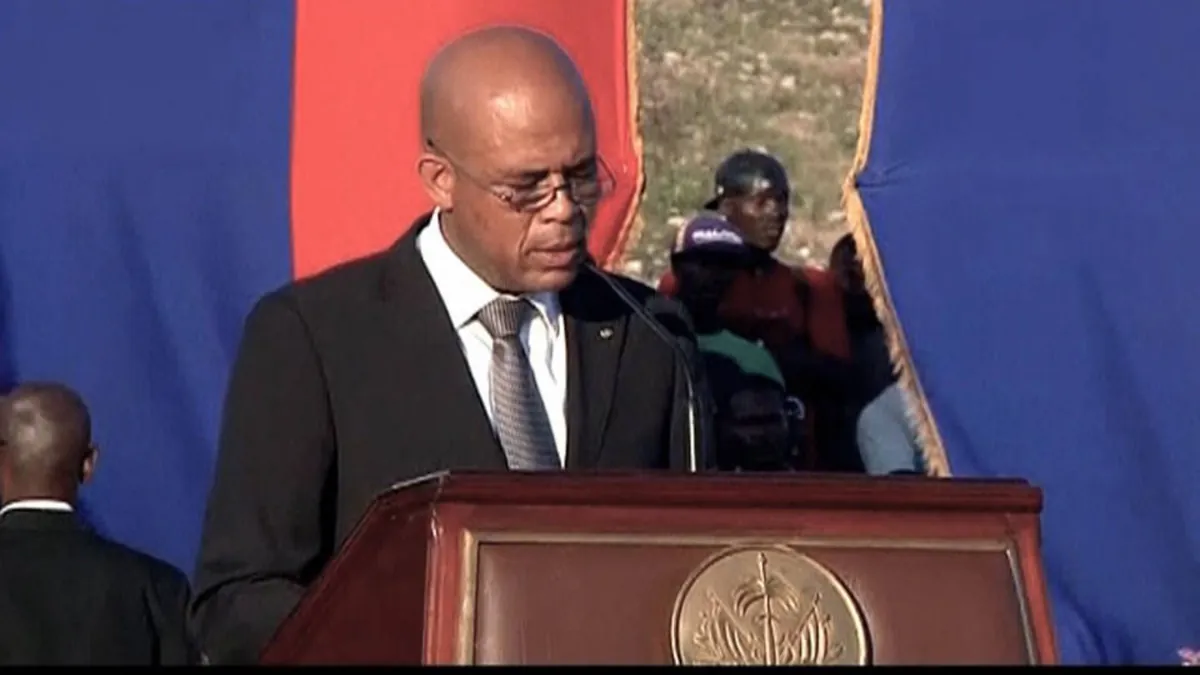The U.S. Treasury Department has imposed sanctions on Michel Martelly, Haiti's former president, citing alleged involvement in cocaine trafficking and gang sponsorship. This action, taken on August 27, 2024, marks a significant shift in U.S.-Haiti relations and underscores the ongoing challenges facing the Caribbean nation.
Martelly, who led Haiti from 2011 to 2016, has faced accusations of corruption and criminal activities for years. The U.S. sanctions freeze his assets and prohibit transactions with American entities. This move comes amidst Haiti's struggle to establish stability following the assassination of President Jovenel Moïse in July 2021.
"It is unacceptable for Haitian political and economic elites to plunder Haiti's future."
The sanctions against Martelly highlight the complex history of U.S. involvement in Haiti, which has experienced 32 coups since gaining independence in 1804. The U.S. occupied Haiti from 1915 to 1934, and its influence on the country's politics remains significant.
In other Caribbean news, Hurricane Beryl's impact in August 2024 has led to the activation of new financial instruments. Grenada became the first country to use a "hurricane clause," allowing it to delay debt payments to certain creditors. This development showcases innovative approaches to climate finance in vulnerable island nations.
Meanwhile, Nicaragua's government has intensified its crackdown on dissent, stripping over 1,500 nonprofit organizations of their registrations. This action, affecting many Catholic groups, reflects the growing tension between President Daniel Ortega's administration and religious institutions.
In a lighter turn of events, Prince Harry and Meghan Markle toured Colombia from August 15-19, 2024. Their visit, which included meetings on women's rights and cyberbullying, highlighted Colombia's increasing appeal as a tourist destination. The country, known for its 59 national natural parks covering over 11% of its land, has seen a significant rise in international visitors in recent years.
Turning to Mexico, thousands of judges and court workers went on strike in August 2024 to protest proposed judicial reforms. President Andrés Manuel López Obrador's plan to allow popular election of magistrates has drawn criticism from various sectors, including international investors and human rights groups.
The proposed reforms, which could be enacted before the inauguration of President-elect Claudia Sheinbaum on October 1, 2024, have raised concerns about judicial independence in Mexico. Critics argue that the changes could violate the U.S.-Mexico-Canada Agreement (USMCA), which replaced NAFTA in 2020.
As Latin America navigates these political and economic challenges, the region continues to play a crucial role in global affairs. From Haiti's ongoing struggles to Mexico's constitutional debates, the events of 2024 are shaping the future of the Western Hemisphere.
